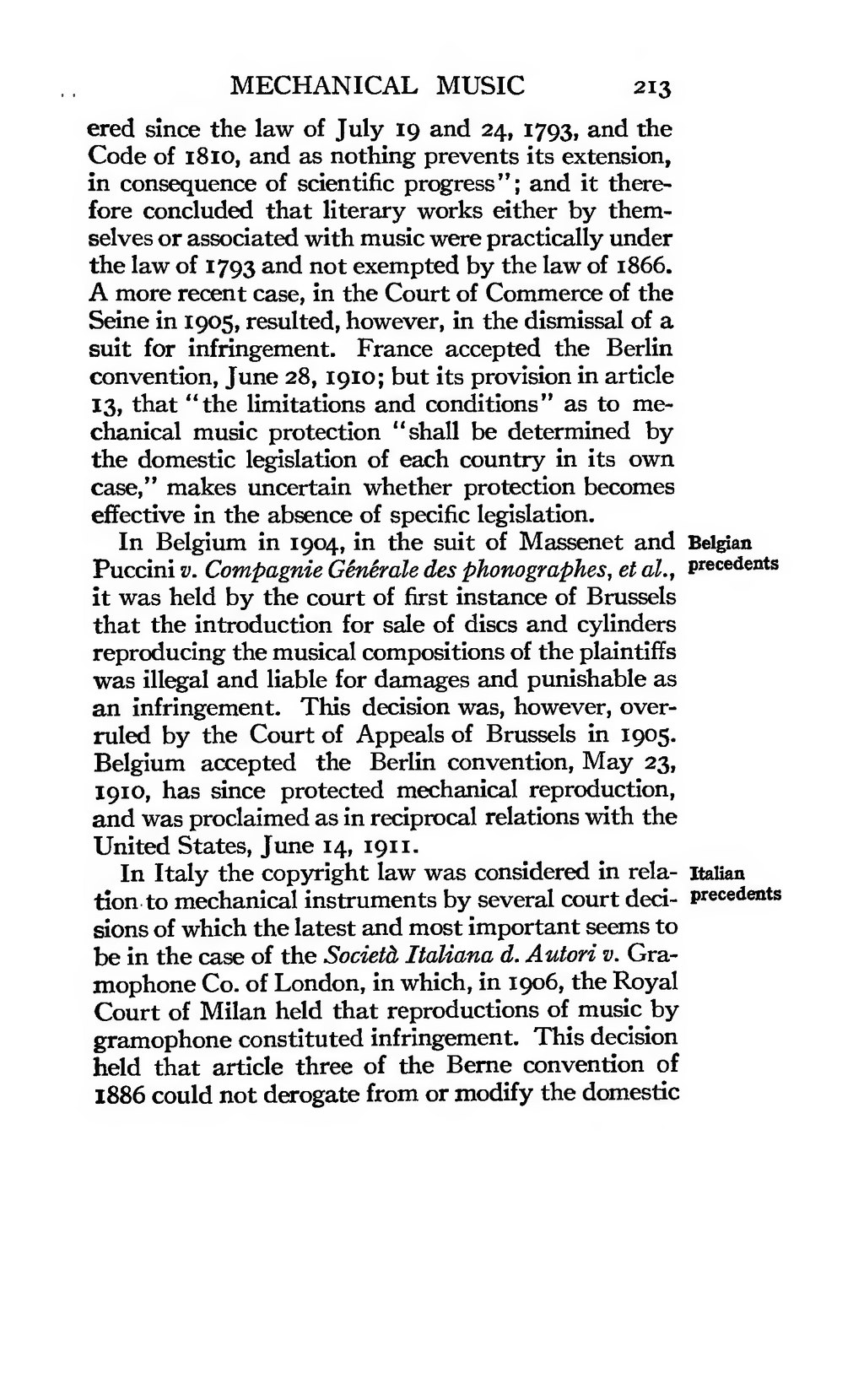ered since the law of July 19 and 24, 1793, and the Code of 1810, and as nothing prevents its extension, in consequence of scientific progress"; and it therefore concluded that literary works either by themselves or associated with music were practically under the law of 1793 and not exempted by the law of 1866. A more recent case, in the Court of Commerce of the Seine in 1905, resulted, however, in the dismissal of a suit for infringement. France accepted the Berlin convention, June 28, 1910; but its provision in article 13, that "the limitations and conditions" as to mechanical music protection "shall be determined by the domestic legislation of each country in its own case," makes uncertain whether protection becomes effective in the absence of specific legislation.
Belgian
precedentsIn Belgium in 1904, in the suit of Massenet and Puccini v. Compagnie Générale des phono graphes, et al., it was held by the court of first instance of Brussels that the introduction for sale of discs and cylinders reproducing the musical compositions of the plaintiffs was illegal and liable for damages and punishable as an infringement. This decision was, however, overruled by the Court of Appeals of Brussels in 1905. Belgium accepted the Berlin convention. May 23, 1910, has since protected mechanical reproduction, and was proclaimed as in reciprocal relations with the United States, June 14, 1911.
Italian
precedentsIn Italy the copyright law was considered in relatlon to mechanical instruments by several court decisions of which the latest and most important seems to be in the case of the Societa, Italiana d. Autori v. Gramophone Co. of London, in which, in 1906, the Royal Court of Milan held that reproductions of music by gramophone constituted infringement. This decision held that article three of the Berne convention of 1886 could not derogate from or modify the domestic
